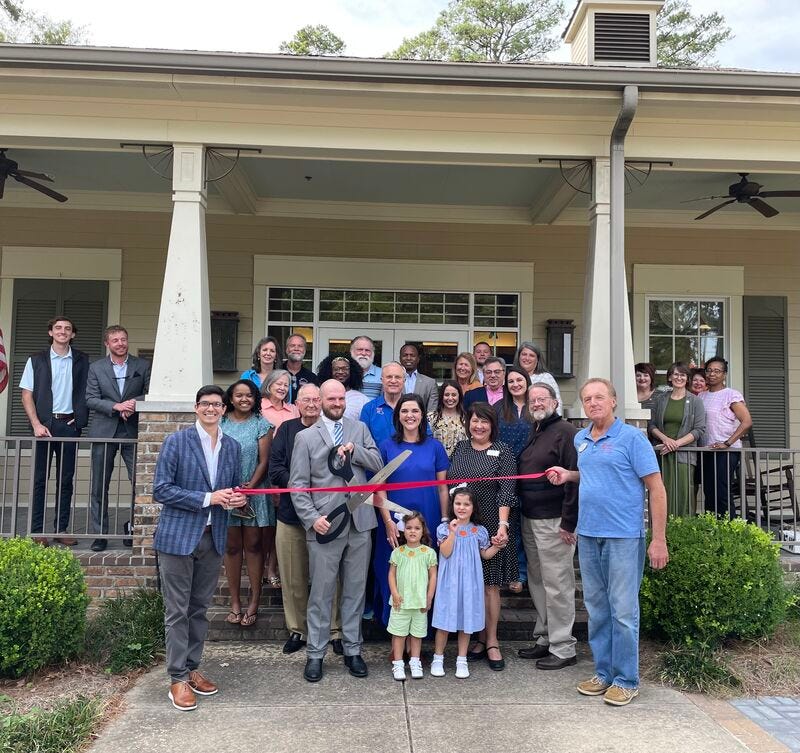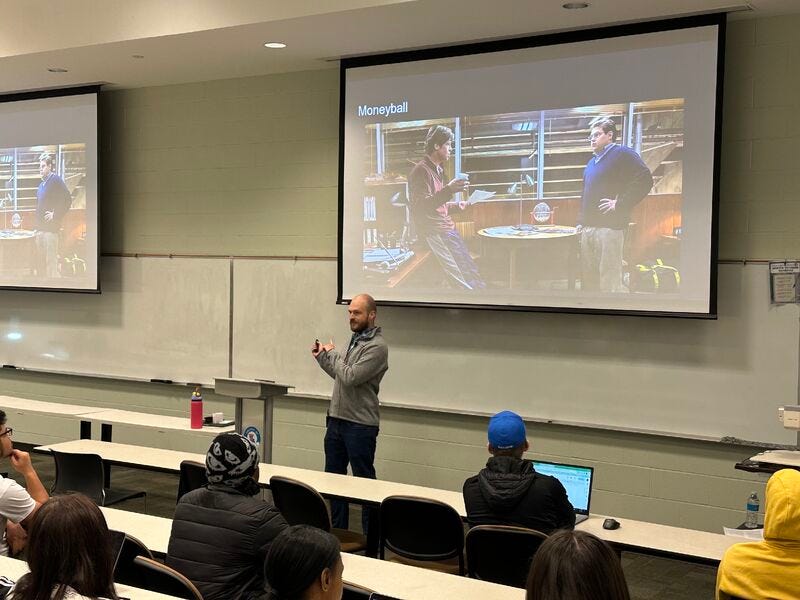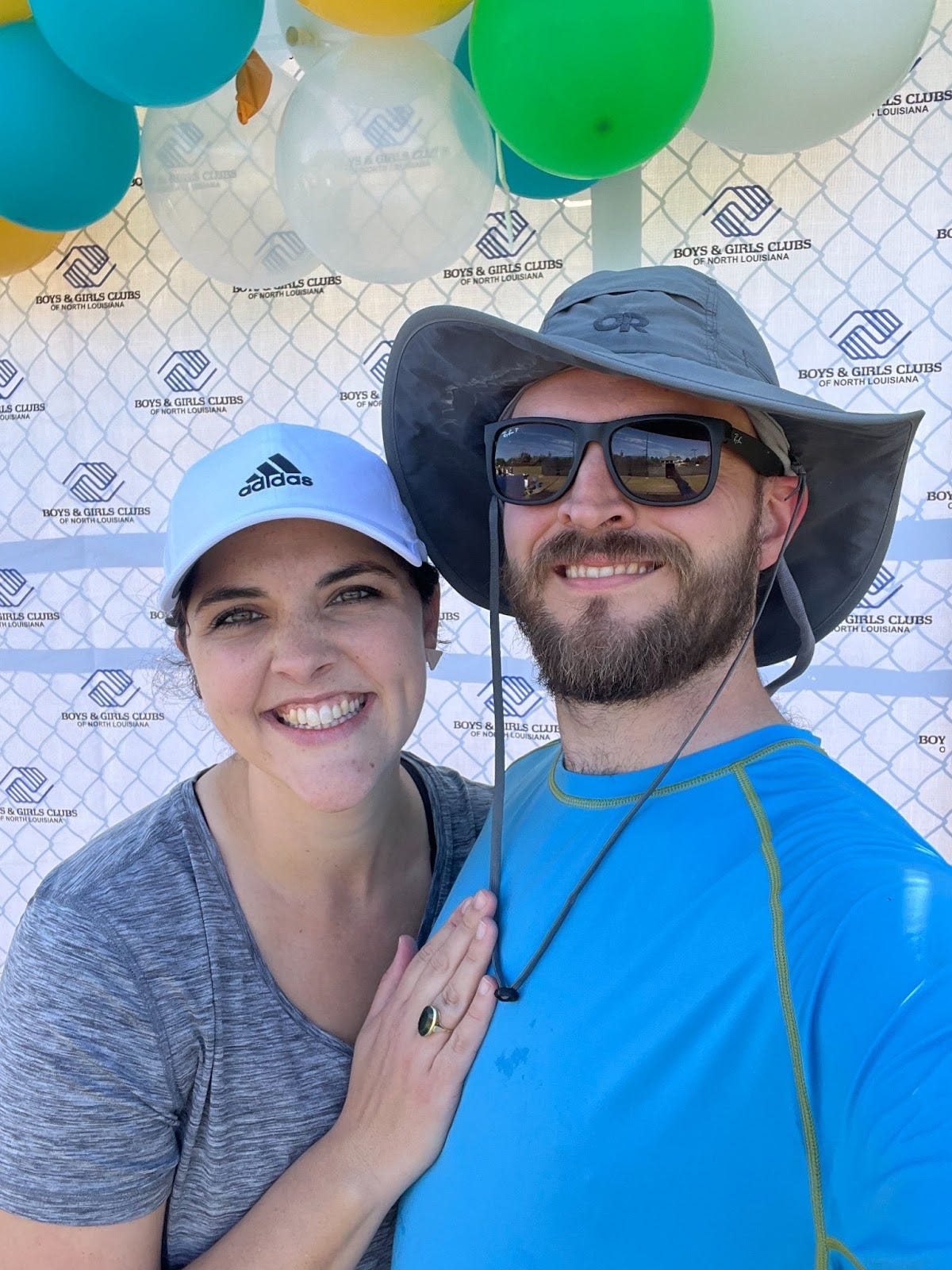The Solopreneur's Local Playbook: Building a Thriving Business in Your Community
How David McCandless Is Growing His Data Analytics Consulting Business
Hi fellow consultants and solopreneurs 👋 ! Ben here.
Today we have a special guest post from David McCandless.
David left his BI and Data job at Amazon nearly two years ago to start his own independent consulting company. Since then it’s been growing and he is an active member of the TFA community.
I asked him if he could write about how he has been growing his business. Specifically, his strategy to target local companies and how he has been going about it.
I hope you enjoy 😊
Hello from Ruston, Louisiana - my backyard specifically. Speaking of backyards, this article is about how to find and serve customers in your backyard.
I’m a solopreneur analytics and automation consultant. While I’m targeting this message at other analytics and automation consultants like myself, many of the principles will apply to any consulting business.
I’ve been consulting since August 2022 and in that time the majority of my revenue and clients originate from my beloved, small town of 30,000 people. I also live in Louisiana, a state that is accustomed to being in the bottom 20% of economic opportunity by state. So, if I can build my business off local customers, I’m confident most of you watching this can, too.
When you’re in a profession like mine that is remote-friendly, it’s easy to overlook doing business locally. However, doing business locally offers unique advantages in 1) starting with a baseline of trust as fellow townspeople; and 2) serving customers who share and contribute to the community where you live, thus enriching the place you call home.
Hopefully, that’s enough ‘why’ to get you curious about the ‘how’ of finding local customers. Let’s get into the how.
1. Leverage Civic Connections:
Join key organizations and meet their leaders: Become an active member of the Chamber, Rotary, or similar groups. These groups offer networking and educational events. One of the best things I did when starting my business was joining the Ruston-Lincoln Chamber of Commerce and meeting with its president, Will, who introduced me to my first local customer.
Meet key leaders and ask for their help: Connect with the leaders of civic organizations, especially those w/ which you get involved, as well as elected leaders like your mayor and city council member. They should be excited to know there is a new business looking to enrich their community. Share your ideal client profile and your prospect list, and ask for introductions. Ask them if given your ideal client profile, you’re overlooking local businesses. Both my Chamber president and mayor shared businesses with me that keep a low profile yet fit my ideal customer profile.
Ask those same leaders how you can help them. Your civic organization might have a recurring educational series and you’d be the perfect facilitator for an upcoming workshop. Ask what kinds of business problems they think you could help solve in the area. Their insights should help you benchmark your community and where you fit in.
These civic organizations and/or elected leaders might be able to help you unlock grants and other attractive funding options, enabling you to better serve customers. In 2023, I received a grant from my Chamber to obtain Snowflake certifications.
Me accepting my grant check at a press conference in December 2023.
Lastly, host a local event to raise awareness of your business and/or to celebrate a milestone. As a member of the Chamber, I held a ribbon cutting. These events don’t just have to be when you’re opening your business; you could host an event to celebrate your first year in business, opening a physical office, etc. Thanks to my ribbon cutting, I had face-to-face follow-up meetings with two prospects and have received thousands of impressions on social media. As I’ve talked to friends in other states, multiple friends have commented about, ‘I saw your ribbon cutting on social media. Congrats!’
My business' ribbon cutting in October 2023
2. Partner with Adjacent Professions:
Seek complementary relationships: Build connections with local B2B bankers, accountants, lawyers, IT firms, management consultants, etc. If these professionals need data help as they’re serving their customers, they might subcontract you. You can refer each other to clients and prospects. As both sides grow, you might even do business together.
A local management consultant solopreneur has referred me to two customers in the one year we’ve known each other. I look forward to the day that I can return the favor.
3. Give back to your community by engaging with Local Universities:
Offer your expertise: Guest lectures, technical trainings, and adjunct teaching can build visibility and trust among future business leaders, or in the case of graduate courses, some current business leaders.
Collaborate on research: Partner on grant proposals, research projects, or capstone data projects for local businesses.
Professors are some of the easiest leaders to get a hold of - if you don’t know them or have a warm introduction from somebody like a former student friend, just call their department and find their office hours.
Me speaking to a junior-level marketing course at Louisiana Tech
4. Support Local Nonprofits with your skills:
Donate your skills: Many nonprofits struggle with data tasks. You can help them out, and along the way, receive an in-kind tax-deductible donation and/or add to your public portfolio.
Build rapport with fundraising directors: these directors know the community and can connect you with potential clients. They're like local business matchmakers! If you’ve done work for their team, they can even be a reference.
My beautiful wife and me at the First Annual Boys and Girls Clubs of North Louisiana Pickleball Tournament. My mother-in-law works as the director of fundraising for this local nonprofit. My wife and I helped plan the tournament and I helped her wrangle the messy registration data to build the tournament brackets.
5. Be aware that you represent your business - all the time.
Perhaps as you show patience to a new cashier at the grocery store, you’re unknowingly making a positive impression on a prospect in line behind you.
Conversely, your public persona can alienate potential and current clients. For example, writing a controversial letter to the local newspaper’s editor might impact your prospects positively and/or negatively.
Lastly, being physically present shows you care. Take clients to coffee, buy them lunch, attend their events, host your own events, and build those in-person connections that online efforts can't replace. Events can be simple, low-cost affairs like a college basketball game or a happy hour. If you’re in a large enough city, there might be technical vendor salespeople who can sponsor these events (e.g. first round of drinks on Snowflake or Tableau.) Even if you’re in a smaller city like mine, you might be able to find a sponsor in a civic organization, a local bank, etc.
Final Thoughts
In summary, by leveraging civic connections, partnering with complementary professions, engaging with universities and nonprofits, and simply being a role model, you can build business relationships that pour back into the community you call home. My dad likes to say that business proceeds at the pace of trust. Focusing locally offers unique opportunities to start with a baseline of trust and chances to build trust - from intentional interactions like a workshop to less intentional interactions like running into a prospect in the grocery store. Given our ultimate goal as consultants is delivering results, and trust is such a key ingredient to delivering results, focusing locally can be a valuable part of your portfolio.
Please share in the comments your tactics for finding local clients, building trust, and shaping the place you call home!
Thanks for reading, if you want to read some of the prior articles, then read these articles.
Starting Your Own Consulting Company Today
Looking to start your own data analytics consulting company? Not sure how to attract clients, partner with the best vendors, or choose projects you're passionate about?
I've been there. In my Technical Freelancer Academy, I share how I built a successful data analytics consulting business from the ground up. A business that made it possible for me to quit my data engineering job at Facebook.
See you there!










Really goes to show how success can come from so many different resources. Way to go.
I love this piece